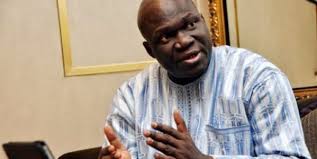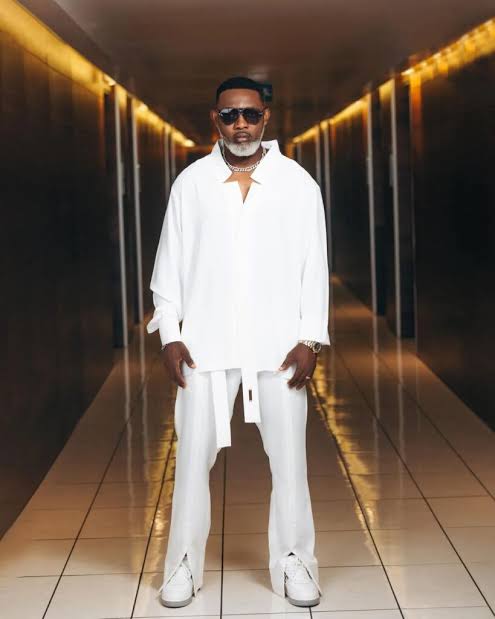Virtually everything in Nigeria no matter how well-meaning ends up getting ethnicized, or politicized, or religionized. So it is with Operation Amotekun: the Western Nigeria Security Network whose recent launch by the Governors of the South West, on January 9, has thrown up key questions at the heart of the Nigerian dilemma as well as the fault lines of the Nigerian state.
Today, in all the six states of the South West, there is a planned Amotekun Solidarity Walk to be led by state co-ordinators who are members of a group called Yoruba World Congress – an umbrella group for all Yoruba socio-cultural and self-determination groups. A statement issued by the Congress says: “All Yoruba people are urged to come out in their millions anywhere they are in Oduduwa land on Tuesday to show to the world that Amotekun has come to stay.” Yorubas in Kwara State have been asked to join the protest. Non-Yoruba residents in the South West have also been told that Amotekun is for the protection of everyone in the South West, not only Yorubas. The planned rally may strengthen the position of those who argue that Amotekun is an attempt by the South West to assert itself within the Nigerian Federation, and a hidden plan to introduce state police or regional police through the back door or perhaps an initial move towards the South West’s demand for restructuring. Nonetheless, the suspicion that this is an anti-Federal Government initiative or a form of political rebellion cannot stand: 5 out of the 6 Governors spear-heading Operation Amotekun are members of the ruling All Progressives Congress. Only Governor Seyi Makinde of Oyo State belongs to the opposition Peoples Democratic Party.
Whatever shape the Amotekun Solidarity Walk assumes in terms of attendance, the organisers have a duty to ensure that it is peaceful and it is well-organized. They have the right to express an opinion on an issue of public interest. They are also entitled to a legitimate right to protest. The police and other security agencies must see the need to facilitate the expression of those rights. The Inspector General of Police and his men must tread with caution and be completely professional. We do not expect to read reports of either accidental discharge or abuse of fire-power/ tear gas tomorrow morning. Without knowing it, the Federal Government by declaring Operation Amotekun “illegal” has simply further divided the country along geographical lines: North vs. South; and provided fuel for the politics of solidarity in the South and the Middle Belt and the oxygenation of identity politics in the South West.
This is the import of the questions that have been raised about the Federal Government’s objection to Operation Amotekun. The Attorney General of the Federation quoting Article 45 of the Second Schedule of the 1999 Constitution (as amended) which gives the Federal Government exclusive powers over the police, insisted in a statement that the Western Nigeria Security Network is unlawful. Malami is a Senior Advocate of Nigeria (SAN). He is also Chief Law Officer of the Federation and Legal Adviser to the Federal Government. The Amotekun Solidarity Walk is meant to remind him that he is not in a position to give orders to the six states in the Western part of Nigeria. It is an open, people-driven rejection of his interpretation of the law. Other Silks like him (Femi Falana, Olisa Agbakoba and Chief Afe Babalola) and a senior legal scholar, Professor Itse Sagay who is pro-Buhari, pro-APC, and pro-establishment has also had cause to give the Attorney General a brief lesson in elementary law. The Attorney General owes the public another statement in response to the counter views that have now been expressed quoting the same 1999 Constitution.
Do the people of Nigeria, whatever may be their ethnicity, have a duty to make useful contribution to the well-being of their communities as stated in Section 24 of the Constitution? Is the Attorney General of the Federation also aware that President Muhammad Buhari reaffirms the value of this section of the Constitution each time he proclaims that national security requires the contribution of every Nigerian and every community? Chief Afe Babalola has also drawn the attention of the AGF to Sections 40 and 45 of the Nigerian Constitution. In rejecting the position of the Office of the Attorney General of the Federation, various stakeholders are convinced that he was merely expressing a personal opinion and that he has no powers to enforce his own declaration. They want him to go to court if he so wishes, and thus allow the courts to offer an interpretation and pronounce accordingly.
Operation Amotekun is a product of the politics of protection and the failure of the same Nigeria Police that the AGF Malami seeks to protect. It has been said that Amotekun is an attempt to create state police or regional police. If so, what is even wrong with that? We need to be reminded that state police or regional police is not such an abstraction as many make it out to be. The police in Nigeria has colonial origins. Between 1861 and 1930, Nigeria had a totally decentralized police system: every part of the country: the Lagos Colony, the Niger Coast, the Northern and Southern Protectorates, Native Authorities and Local Governments had their own police forces. Under the indirect rule system, local police forces were under the control of traditional rulers, especially in Western and Northern Nigeria. The Native Authority Ordinance (No 4 of 1916) and later, the Protectorate Laws (Enforcement) Ordinance (No 15 of 1924) empowered traditional rulers to prevent crime and arrest offenders in their jurisdiction and employ persons for police work.
In the West, the kings had “akodas and olopas”; in the North, there was the dogarai or yan dan doka. There were also Constabularies. In 1930, the colonial authorities merged the Northern and Southern Nigeria Police Forces. It was the first time a national police force would be established, but even then, that national body co-existed with local police forces in Western and Northern Nigeria. While the people accepted the latter, they distrusted the national police which was largely regarded as a cruel instrument of oppression and intimidation used by the colonial authorities to suppress the people. The people were largely afraid of the colonial police. In 1966, the Aguiyi-Ironsi regime set up the Gobir panel to re-examine the idea of having two police forces –local and national. The report was eventually submitted to the Yakubu Gowon regime and in line with the recommendations of the Gobir panel, the local police forces were disbanded on the grounds that they were corrupt and open to abuse by politicians.
The national police, the Nigeria Police Force was retained, even if nothing was done to transform it in terms of essence, character and culture. The Nigeria Police after independence retained its character as a tool of oppression and intimidation, feared rather than respected by the people. It has since then remained a tool in the hands of the powerful. Between 1966 and 1979, the police hierarchy featured now and then in the governance process, but in due course, military rulers of Nigeria crippled the police, by starving the institution of funding, equipment and personnel. The military didn’t want a rival security agency. Since the return to democracy in 1999, the fortunes of the Nigeria Police have not changed. The two former military leaders who became President during the period have paid more attention to the armed forces. They can claim that they have had to deal with the emergent crisis of insurgency in the South-South and the North East and an asymmetrical war of terrorism but the truth is that the Nigeria Police is handicapped. It remains linked to its colonial character as a tool in the hands of powerful forces to be used to oppress and suppress the people. There is no guarantee that any former soldier in office as a civilian President of Nigeria would ever reverse the fortunes of the Nigeria Police or accept the idea of a state police.
The inefficiency of the Nigeria Police and its slavish character have made matters worse. Complaints about police brutality indicate the scope of the alienation between the people and the institution but it is the gross inefficiency that has been reported that is the main problem. Since 1999, there has been a strong agitation for the creation of state police, especially in the Southern part of Nigeria. The people want to control their own security. Section 214 (1) of the 1999 Constitution recognizes only a national police force viz: “There shall be a Police Force for Nigeria, which shall be known as the Nigeria Police Force, and subject to the provisions of this section, no other police force shall be established for the Federation or nay part thereof.” Section 215 establishes the office of the Inspector-General of Police and State Commissioners of Police and defines the source of authority, being the President or whoever he authorizes in Section 215(3). Still, the truth is that the Nigeria Police as it is, suffers a crisis of legitimacy and confidence.
The response to this has been the emergence of all kinds of security outfits across the country since 1999 to take care of community interests. Vigilantism in most parts of Nigeria in the form of neighbourhood guards, alternative, private sector security guards, estate protection units, and vigilance groups set up by state governments (more than 23) and the erosion of confidence in the national police illustrate the extent of this situation. In parts of the North, there is the Hisbah police, which enforces Sharia rules. In the North East, the Borno state government set up the Civilian Joint Task Force to assist the military and other security agencies to fight the Boko Haram, and ISWAP. The bravery and contributions of the Civilian Joint Task Force have been praised by both local and international analysts. In South West Nigeria, there was the Oodua Peoples Congress, in the East, the Bakassi Boys, in the South South, the Egbesu Boys. Every other community has tried to make an effort to defend and protect itself. In fact, some of the states in the South West at some point set up Security Trust Funds to provide support for the under-funded, formal, extant security agencies and vigilante groups.
And now, the Attorney General of the Federation complains about Operation Amotekun. Was he just being politically correct to align with the misguided views of some Northern youths and elders? We should be surprised that he has not declared as unlawful, the employment of security guards by virtually every home, every neighbourhood and every community in Nigeria. When you attend any of the parties held every weekend in Lagos, you are most likely to find private guards providing security. Nobody calls the police. They are afraid that the police will collect bribe and allow all sorts into the hall, in addition to the fear of accidental discharge.
Operation Amotekun is a community response to the challenge of insecurity in Nigeria. President Muhammadu Buhari says ensuring security of lives and properties is an important part of his three-dimension pact with the Nigerian people but Nigerians still feel very insecure. His harshest critics compare the present situation in the country to the season of anomie that was the civil war of 1967 – 1970. Hence, Amotekun, given the spike in banditry, pastoralist vs. farmers conflicts, kidnapping, insurgency, armed robbery and terrorism. What the Governors of the South West have demonstrated is that they have a “Responsibility to Protect” their people. Their recognition of that responsibility can only be meaningful in terms of intervention. Hence, Operation Amotekun . They deserve to be commended and not harassed by an over-bearing Federal Government interpreting the law rather selectively. Good enough, the Attorney General of the Federation has been reminded that there is more than one rule of interpretation in law.
The conversation is however altogether useful. Operation Amotekun has generated fundamental questions around the 1999 Constitution and the police as an institution. Shouldn’t someone in the National Assembly propose a Bill for a reconsideration of Sections 214 and 215 of the 1999 Constitution, to move Nigeria away from the threshold of imperial policing to people-focused, community-based policing? The colonial forces constantly re-organized police forces in Nigeria between 1861 and 1930. Why is the Nigerian State in a season of innovation and creativity in the world, so trapped in the past, unable to provide security for the people? This is the main question.
- Ihedioha Wins in Losing
Hon. Emeka Ihedioha, former Deputy Speaker of the House of Representatives (2011 -2015), and Governor of Imo State (May 29, 1999 – January 14, 2020) was removed from office by a seven-man panel of Supreme Court Justices in what would be remembered for a long time as one of the most earth-shaking moments in the history of the Supreme Court of Nigeria. By failing to make its ruling available promptly, and the reasons for its decision to award victory to Senator Hope Uzodinma who came fourth in the March 9, 2019 Gubernatorial election in Imo State, the Supreme Court of Nigeria has created room for speculations and for imaginations to run riot.
The Ihedioha case is test case for the maxim that “justice must not only be done; it must be seen to have been done.” No matter what their Lordships say, now or later, the dominant public opinion is that justice has not been done. Wittingly or unwittingly, the Supreme Court has turned every observer into a mathematician. How on earth, the people ask, did the Supreme Court arrive at a final tally of votes that exceed the number of registered and accredited voters? The protests in Imo state on Sunday and similar protests across the country, even in non-PDP states, is an indication that it is our fragile democratic process that is threatened. Hope Uzodinma loses in winning. Ihedioha is the real winner. His loss has transported him to a higher place of reckoning. He is the Prince of the People’s Hearts, beyond legal technicalities.
























Leave a comment